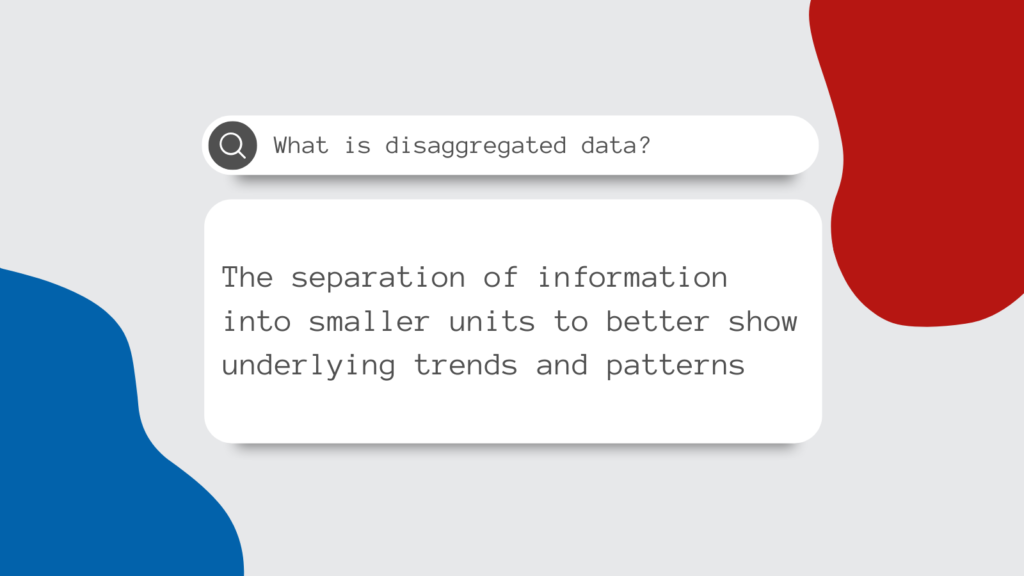
There have been consistent inequities impacting children from Black, Indigenous, and other People of Color (BIPOC) families in Arkansas. Due to structural racism, BIPOC families are more likely to earn incomes below the poverty line, face higher levels of underemployment and unemployment, and have fewer financial resources than their White counterparts. In addition, we know that BIPOC families have been most affected by the COVID-19 pandemic, so we must remember that we do not yet know the full impact of the pandemic on these children and families. However, it is very likely that we will see higher rates of families being paid incomes below the poverty line, increased levels of food insecurity, and increased cases of health issues such as asthma, diabetes, and heart disease.
There is not a specific category that examines race equity in the 2022 KIDS COUNT® Data Book. However, the KIDS COUNT Data Center provides many important child well-being indicators with data disaggregated by race for each state and nationwide. That means that we can usually take a closer look to see how outcomes for Arkansas’s children differ by race. However, since the pandemic has caused several data collection issues (data comes from both federal statistical agencies and state governments), and the 2020 Census has not released demographic data, the most recent data is still from 2019.
The Data Book tracks children’s well-being across four domains and 16 indicators. Even without the 2020 data we can see that over time, when looking into the disaggregated race and ethnicity data underlying each of those domains, consistent disparities between BIPOC children in Arkansas and their White counterparts. Therefore, since Arkansas has not made investments to address the systemic issues impacting BIPOC children in our state, we can expect to see these trends continue, if not worsen, when the 2020 disaggregated data is finally released.

The lack of disaggregated data is especially troubling for Arkansas as, according to research from the Census Bureau, Arkansas has the highest undercount in the 2020 Census of any state at 5%. If that is correct, they failed to count around 1 in 20 people or more than 150,000 Arkansans! Census data determines how many federal programs distribute funds to states. It is important to note that Arkansas was one of only four states that declined to invest money on outreach for the census (all four had undercounts). That lack of investment is going to punish the people of Arkansas deeply over the next 10 years. We know this because the Census has consistently undercounted children under age 5 since 1980. An estimated 1 million children nationwide were not counted in 2010, and in Arkansas, it was estimated that 6,500 children ages 0 – 4 were not counted. That translated into a loss of federal funds totaling $59 million for Arkansas between 2010 and 2020. The 2020 undercount is going to cost Arkansas at least $720 million dollars per year for the next 10 years, or at least $720 billion in total.
The census data also has significant implications for marginalized populations. Unfortunately, the Census Bureau is also reporting larger errors in the 2020 census than in 2010. In fact, nationwide there was an overcount of the White population and a significant undercount of the Black and Hispanic (Latine) population at -3.3% and -5%, respectively (the Census Bureau has not released state-level demographic data yet). In addition, it seems clear that many LGBTQIA+ folx were not counted in the census for any number of reasons: the 2020 census didn’t ask questions about sexual orientation and gender identity proposed by national LGBTQIA+ advocates so that their communities could be accurately counted and funded.
I think it is important that we ask how many kids were missed this time and what races and ethnicities were impacted the most. Historically, the undercount is more prevalent among Black (6.3%) and Latine (7.5%) kids than their White counterparts, so we can expect that the undercount in the 2020 Census will have a bigger impact on those children in particular. But what is the impact on kids with intersecting identifies such as a BIPOC trans child? We do not know. And, what about Arkansas’s Marshallese population? We do not know. There is no “official” count of the Marshallese children in Arkansas. We hope to see, if and when the demographic data is released, whether or not we have an accurate count of our Marshallese residents, but it seems unlikely given the lack of outreach to the community and language access issues.
Whatever the outcome of these numbers, we are stuck with them until the next census in 2030. So meanwhile, in Arkansas, we must do better at collecting data on all non-White children to ensure that we have information that tells the full story of children from BIPOC communities in Arkansas. We need to know the truth of how these children are faring before we can say something is better or worse for child-wellbeing in the state. Overall, the 2022 Data Book shows that we have 152,000 children living in poverty; 163,000 children living in households with a high housing cost burden; 41,000 children ages 3 and 4 not enrolled in pre-k; 69% of fourth graders are not proficient in reading; 35,000 children without health insurance; 3,388 babies that were born with a low birth weight; 79,000 children living in high poverty areas; and 2,676 teen births. We can expect that these indicators are all impacting BIPOC families.
Failing to address systemic racism perpetuates the imbalance between BIPOC communities and their White counterparts. We must work toward rebuilding our social, economic, and government policies and practices that are perpetuating racial inequality and injustice. We can start by collecting data adequately to make sure that we know what is truly happening in our state.
Rather than tax cuts for the wealthy and corporations, we should use the state’s so-called “surplus” to improve the lives of all children and in Arkansas, especially the BIPOC children and families hit hardest by the pandemic. You cannot in good conscience say that we have a surplus when the programs serving Arkansas’s children and families are not fully funded. Or, when programs requirements are so burdensome that people who are eligible can’t receive the benefits.
Policymakers could, instead:
- Pass and fund legislation to ensure the state provides more quality health care services for children and families by extending ARKids eligibility for children and expanding postpartum access to Medicaid for 12 months.
- Provide more affordable and safe housing to address not only the housing shortage and significantly increased rent costs, but also to ensure that Arkansas renters, like renters in every other state, have a basic right to live in a safe home.
- Provide resources for our schools, community clinics and hospitals, including more mental health access, and requiring scientifically based sex education in schools, as well as making it easier for all Arkansans but especially teens, to obtain access to long-acting contraception.
- Remove barriers to access food and cash assistance programs by Arkansas families.
When we consider the issues that the 2022 Data Book has highlighted for us, it is clear that investing in our children and families is the only option we should be considering to improve outcomes. To do anything else when facing these outcomes for Arkansas’s children would be irresponsible.
